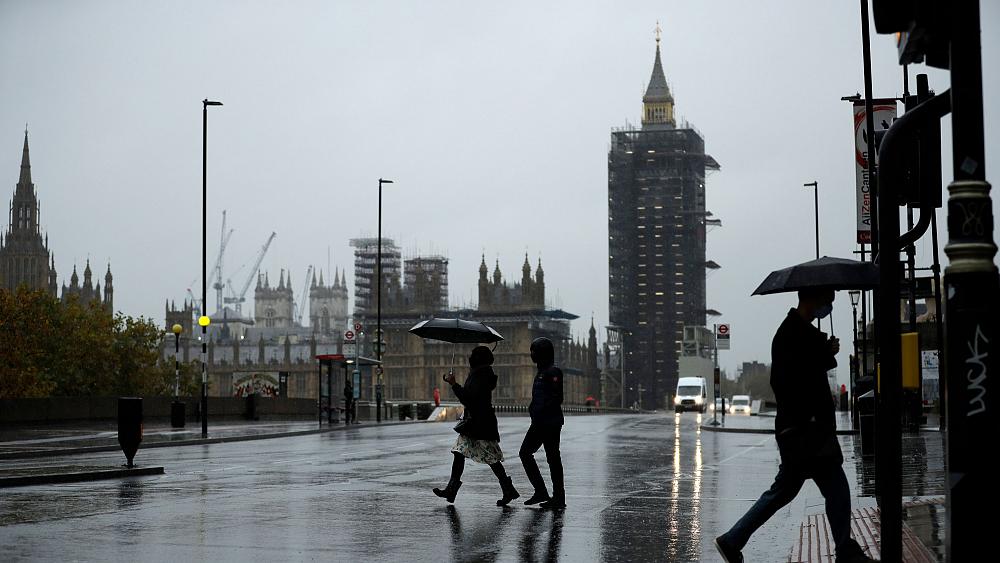
It is unlikely the European Union will grant the UK a grace period in January to help business adjust to the new post-Brexit trading regime, Ireland’s foreign affairs minister has told Euronews.
The EU and UK are in the final stages of negotiations on a possible post-Brexit trade deal, although differences remain.
Either way, significant disruption to trade is expected from January 1 when the UK ceases to be a member of the EU single market and customs union. While the UK left the EU at the end of January, an 11-month transition period was instigated to preserve the status quo. That ends at 23h GMT on December 31.
Trade experts say an initial grace period of around three to six months may be necessary to allow businesses to get used to the changes.
However, Ireland’s foreign affairs minister, Simon Coveney, says such flexibilities are “very difficult” for Brussels to allow.
“No, I don’t think that’s likely, you know, I think that the law changes as regards to trade at the end of the year”, he told Euronews.
“They [the UK] seem to be suggesting that they’re looking for accommodation in terms of being given flexibility for a certain period of time to get things done.
“Britain is a third country and will be trading as a third country and they hopefully will be able to manage that new relationship on the basis of an agreement that can be done in the next in the next week or so.”
Last week, the UK’s National Audit Office said preparations to manage the UK border at the end of the transition period “remain very challenging”.
Preparedness planning for business has been “significantly affected by the ongoing negotiations and wider political context, and by the impact of COVID-19″ the report said.
Anton Spisak, a trade expert with the Tony Blair Institute, said the audit report is “quite striking”, and whether or not British exporters will be able to manage the new system from January 1 depends on whether the UK has sufficient systems and preparedness in place.
Earlier in the year, the UK government rejected calls by Brussels to extend the transition period until after 2021 in order to mitigate from the extremely difficult conditions brought about by the pandemic.
The legal deadline for such an extension to be granted expired in early July. And officials in Brussels say it won’t be possible to return to the matter.
However, there may be “a legal way around this by including a grace period for implementation into the future relationship”, according to Spisak.
“I think those flexibilities are very difficult for the EU to actually facilitate,” said Coveney.
But, he said “there may be specific areas where the EU agrees some flexibility around timelines. But in general, I think the message needs to go out to businesses and to traders. But from the first of January, things change very fundamentally.”
“Even though Britain is now out of the European Union under the withdrawal treaty that took effect at the start of the year, the actual consequence of that, the regulatory consequence to trade in consequence, in some ways, the political consequences of it really take effect from the 1st of January.
“And I think anybody who thinks that the change is going to be pushed out for another three months or six months or 12 months because that change is difficult to accommodate, I think is being naive,” he said.
Related posts:
Views: 0
 RSS Feed
RSS Feed

















 November 14th, 2020
November 14th, 2020  Awake Goy
Awake Goy  Posted in
Posted in  Tags:
Tags: 
















